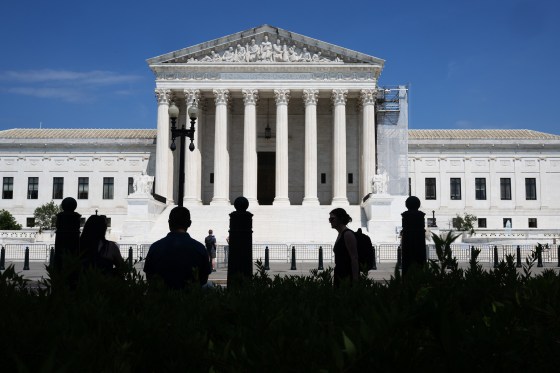
Washington In an unusual decision on Tuesday, the Supreme Court ruled in favor of a death row inmate, allowing an Oklahoma woman convicted of killing her estranged husband to argue that prosecutors improperly brought up her sexual history during the trial.
With a 7-2 vote, the court allowed Brenda Andrew to contest her conviction and death sentence. In Oklahoma, she is the only female inmate on death row.
The court decided that an appeals court erred in concluding that Andrew’s argument that the emphasis on her personal life, particularly how she treated her children, violated her due process rights could not proceed.
“Forbids the introduction of evidence so unduly prejudicial as to render a criminal trial fundamentally unfair,” the Supreme Court stated in an unsigned ruling, citing the 14th Amendment’s guarantee of due process.
For additional proceedings regarding Andrew’s habeas corpus claim, the case will now be sent back to the 10th U.S. Circuit Court of Appeals in Denver.
In a statement, one of Andrew’s attorneys, Jessica Sutton, said, “We are happy that the court closely examined the State of Oklahoma’s manipulation of irrelevant and blatantly sexist evidence during Ms. Andrew’s trial.”
“The appeals court will now “consider whether such information was so damaging as to render Ms. Andrew’s trial fundamentally unfair,” she continued.
In 2001, Rob was murdered twice with a shotgun in the garage of their old Oklahoma City house as Andrew arrived to pick up their two kids. Andrew was found guilty in state court of Rob’s murder.
James Pavatt, her boyfriend and suspected collaborator, was also charged and is presently incarcerated on death row. During the incident, Andrew, who is now 61, was wounded in the arm.
After state court upheld Andrew’s conviction, she filed a habeas corpus claim in federal court, but it was also denied.
Andrew’s attorneys claim that because they had hard proof linking her to the crime, prosecutors concentrated on her personal life.
The allegations brought during the trial included Andrew’s past extramarital affairs, her provocative clothing, and her sexual advances on two young men who were working in her yard.
As the trial came to a close, a prosecutor showed the jurors Andrew’s thong underwear and questioned them about whether a “grieving widow” would don it. “Slut puppy” was another epithet the prosecutor used to describe Andrew, according to her attorneys, but the state claims the remark did not specifically mention her.
In court documents, her attorneys stated that the prosecution’s case “was focused on getting a conviction and death sentence by disparaging her character as a woman.”
Neil Gorsuch and Clarence Thomas, two conservative justices, disapproved with Tuesday’s decision.
In a dissenting opinion, Thomas claimed that the court had not adhered to its own guidelines when deciding whether a habeas corpus suit resulting from a state court prosecution may proceed.
There was “overwhelming evidence that Andrew and Pavatt plotted the murder” to obtain a life insurance payout, according to court documents filed by Oklahoma Attorney General Gentner Drummond.
He went on to say that evidence of Andrew’s “ability to get men… to do her bidding” was pertinent to the case since she had a “visceral hatred” of her husband.
“We are disappointed but respect the court’s decision,” Leslie Berger, a spokesperson for Drummond, wrote in an email.
